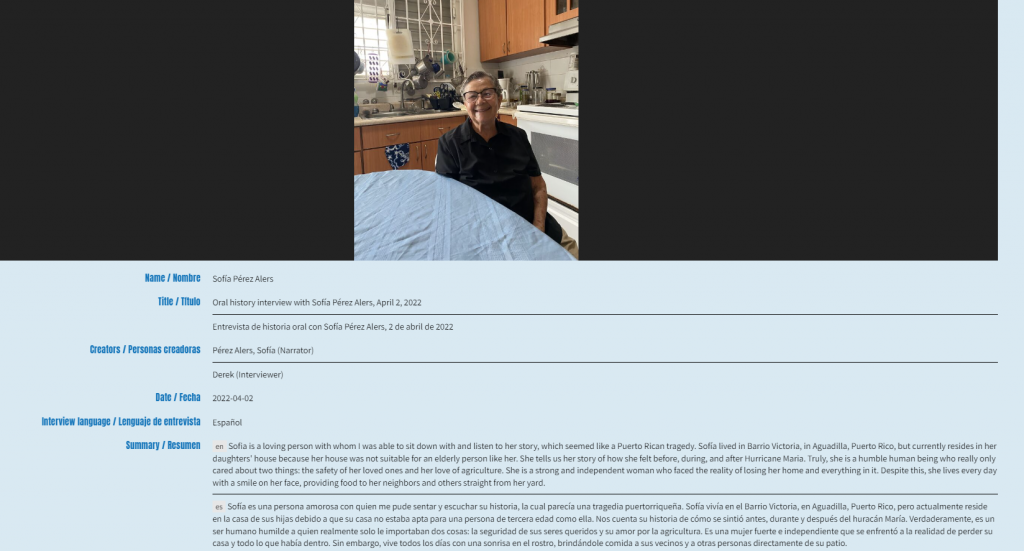Oral history interviews collected by the OHL are deposited in Scholar@UPRM, which is the institutional repository of the University of Puerto Rico at Mayaguez. To access the oral histories in the repository, click here.
A subset of these oral histories are available through the OHL’s Omeka site, which you can view by clicking here.
